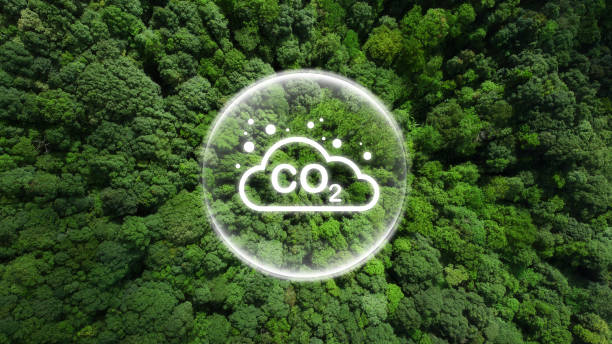Clean air is essential for a healthy and thriving environment. However, with the rapid industrialization and urbanization of our world, air pollution has become a pressing concern. The air we breathe is laden with pollutants that can have detrimental effects on both our health and the planet. In this article, we will explore effective strategies to lessen pollutants in the air, promoting a cleaner and safer atmosphere for everyone.
Understanding Air Pollution
 (Photo from iStock)
(Photo from iStock)
Before delving into solutions, it’s crucial to understand the sources and types of air pollutants. Common pollutants include particulate matter (PM), nitrogen oxides (NOx), sulphur dioxide (SO2), carbon monoxide (CO), ozone (O3), and volatile organic compounds (VOCs). These pollutants originate from various activities, such as industrial processes, vehicular emissions, burning of fossil fuels, and agricultural practices.
Promoting Sustainable Transportation
One of the primary contributors to air pollution is the combustion of fossil fuels in vehicles. To lessen pollutants in the air, we must transition to more sustainable transportation options. Electric vehicles (EVs), powered by renewable energy sources, offer a cleaner alternative to traditional gasoline and diesel vehicles. Governments and individuals alike can incentivize the adoption of EVs through tax breaks, subsidies, and the development of charging infrastructure.
Encouraging public transportation, cycling, and walking also contribute to reducing vehicular emissions. Investing in well-connected public transit systems not only decreases the number of individual vehicles on the road but also provides a more eco-friendly means of transportation.
Transitioning to Clean Energy Sources
Power generation is another significant source of air pollution, primarily when reliant on fossil fuels. Transitioning to cleaner energy sources, such as solar, wind, and hydropower, is vital in lessening air pollutants. Governments can play a pivotal role by investing in renewable energy infrastructure, implementing policies that favour clean energy, and providing subsidies to encourage the adoption of sustainable practices.
On an individual level, households can contribute by installing solar panels, using energy-efficient appliances, and supporting clean energy providers. By reducing dependence on fossil fuels for electricity generation, we can significantly lower the emission of pollutants into the air.
Implementing Industrial Best Practices
 (Photo from iStock)
(Photo from iStock)
Industries are major contributors to air pollution due to their diverse production processes. Implementing and enforcing stringent environmental regulations and standards is crucial for reducing industrial emissions. Companies can adopt cleaner technologies and invest in pollution control measures to limit the release of harmful substances into the air.
Encouraging a circular economy, where resources are reused and recycled, can also minimize the environmental impact of industrial activities. Additionally, supporting eco-friendly practices, such as the use of sustainable raw materials and eco-friendly packaging, can further contribute to reducing industrial pollution.
Strengthening Air Quality Monitoring and Reporting
To effectively tackle air pollution, it is essential to have accurate and up-to-date information on air quality. Governments and environmental agencies should invest in advanced air quality monitoring systems that provide real-time data on pollutant levels. This information can be used to identify pollution hotspots, implement timely interventions, and assess the effectiveness of pollution control measures.
Public awareness and involvement are crucial components of this strategy. Citizens can be informed about air quality through public campaigns, mobile apps, and online platforms. By understanding the quality of the air they breathe, individuals can take proactive steps to protect themselves and advocate for cleaner air in their communities.
Encouraging Green Spaces and Urban Planning
Urban planning plays a significant role in determining air quality. Well-designed cities with ample green spaces and efficient public transportation systems can mitigate the impact of air pollution. Trees and plants act as natural air filters, absorbing pollutants and releasing oxygen. Integrating green infrastructure into urban planning not only enhances the aesthetic appeal of cities but also improves air quality.
Governments and city planners should prioritize the creation and maintenance of parks, green belts, and urban forests. Additionally, zoning regulations that limit industrial activities in residential areas can help reduce exposure to harmful pollutants.
Promoting Energy Efficiency and Conservation
 (Photo from iStock)
(Photo from iStock)
Energy efficiency measures not only reduce overall energy consumption but also minimize the emission of pollutants associated with energy production. Governments can incentivize energy-efficient practices in industries, commercial buildings, and households through tax credits, subsidies, and awareness campaigns.
Individuals can contribute by adopting energy-efficient appliances, using programmable thermostats, and insulating homes to reduce the need for heating and cooling. Simple actions, such as turning off lights and electronics when not in use, contribute to energy conservation and, subsequently, reduced air pollution.
Advocating for Policy Changes and International Cooperation
Addressing air pollution requires a collective effort on a global scale. Countries can collaborate to set international standards for emissions and pollutants, encouraging a unified approach to environmental protection. Additionally, advocating for and implementing strict environmental policies at the national level is crucial.
Citizens, environmental organizations, and businesses can play an active role in influencing policymakers to prioritize clean air initiatives. By participating in discussions, supporting environmentally conscious candidates, and holding governments accountable, individuals can contribute to the formulation and implementation of effective policies.
Conclusion
Lessening pollutants in the air is a multifaceted challenge that requires coordinated efforts at individual, community, corporate, and governmental levels. By promoting sustainable transportation, transitioning to clean energy sources, implementing industrial best practices, strengthening air quality monitoring, encouraging green spaces, promoting energy efficiency, and advocating for policy changes, we can collectively work towards a healthier and cleaner atmosphere.
Every action, whether big or small, contributes to the overall goal of reducing air pollution and safeguarding the well-being of current and future generations. As we implement these strategies, we move closer to breathing a breath of fresh air—a breath that is free from the harmful pollutants that threaten our health and the health of our planet.
In conclusion, adopting these strategies fosters a sustainable and cleaner future. By prioritizing clean air initiatives globally, we can ensure a healthier environment for generations to come.




